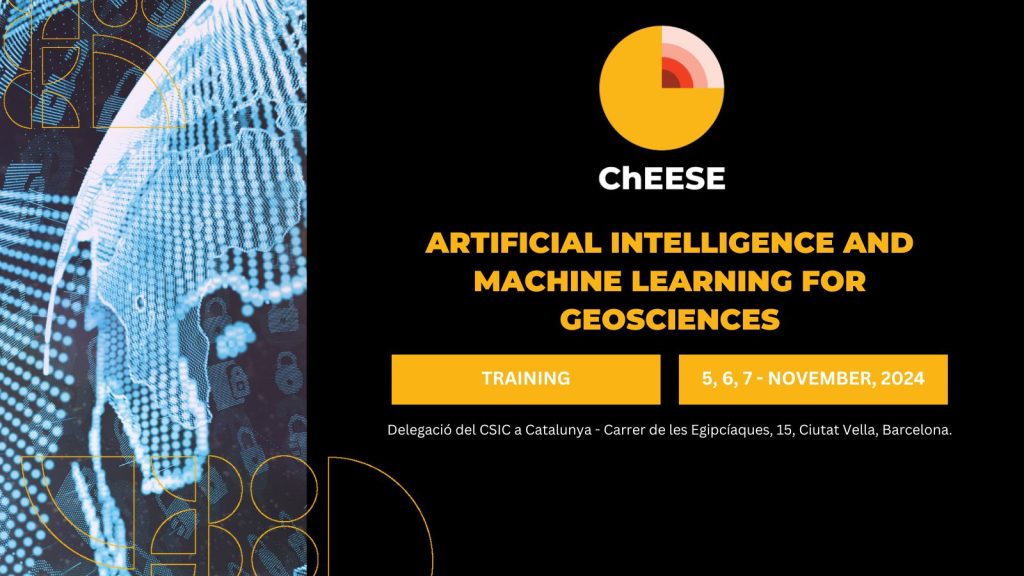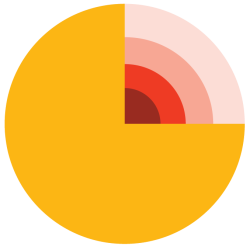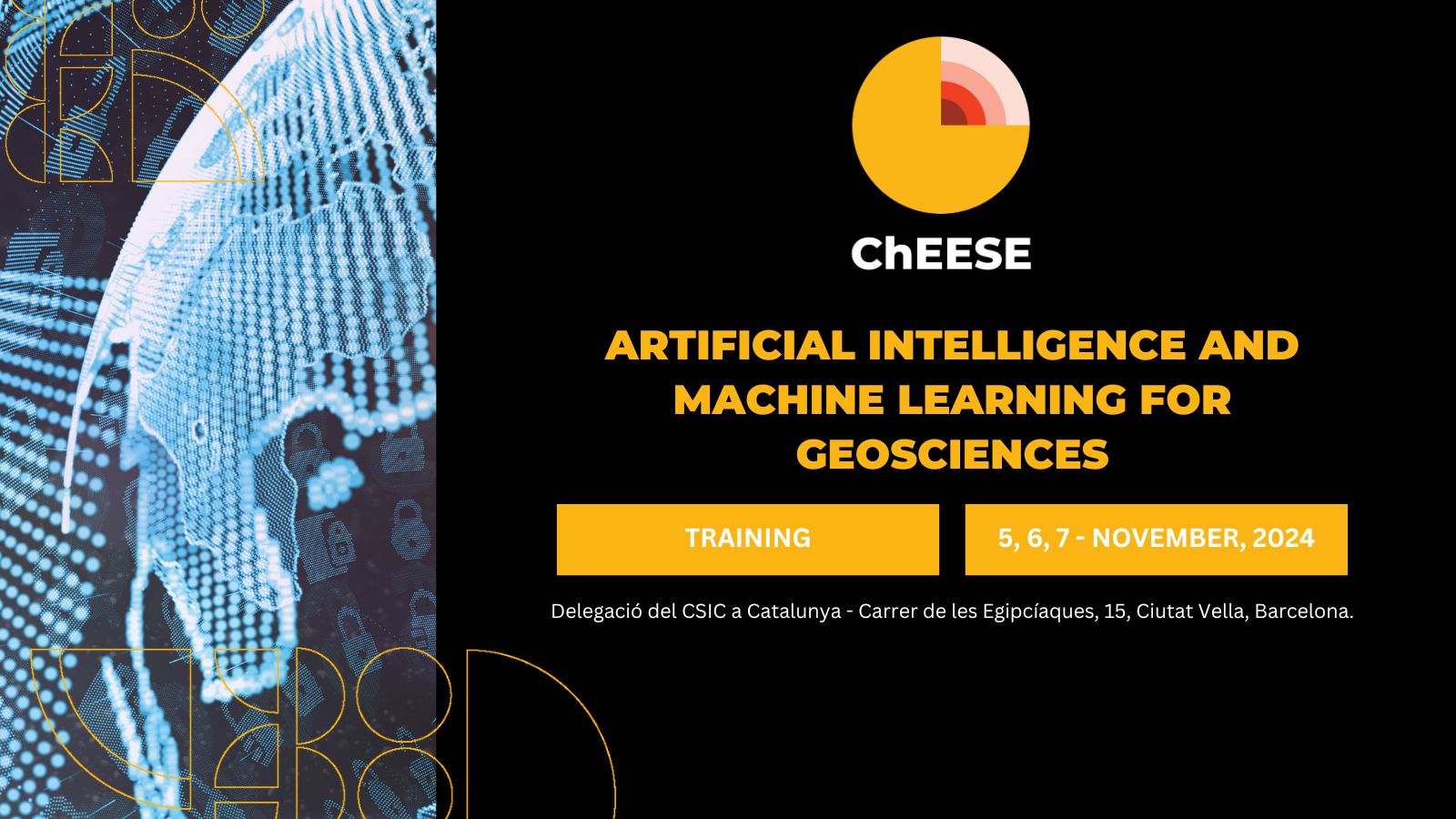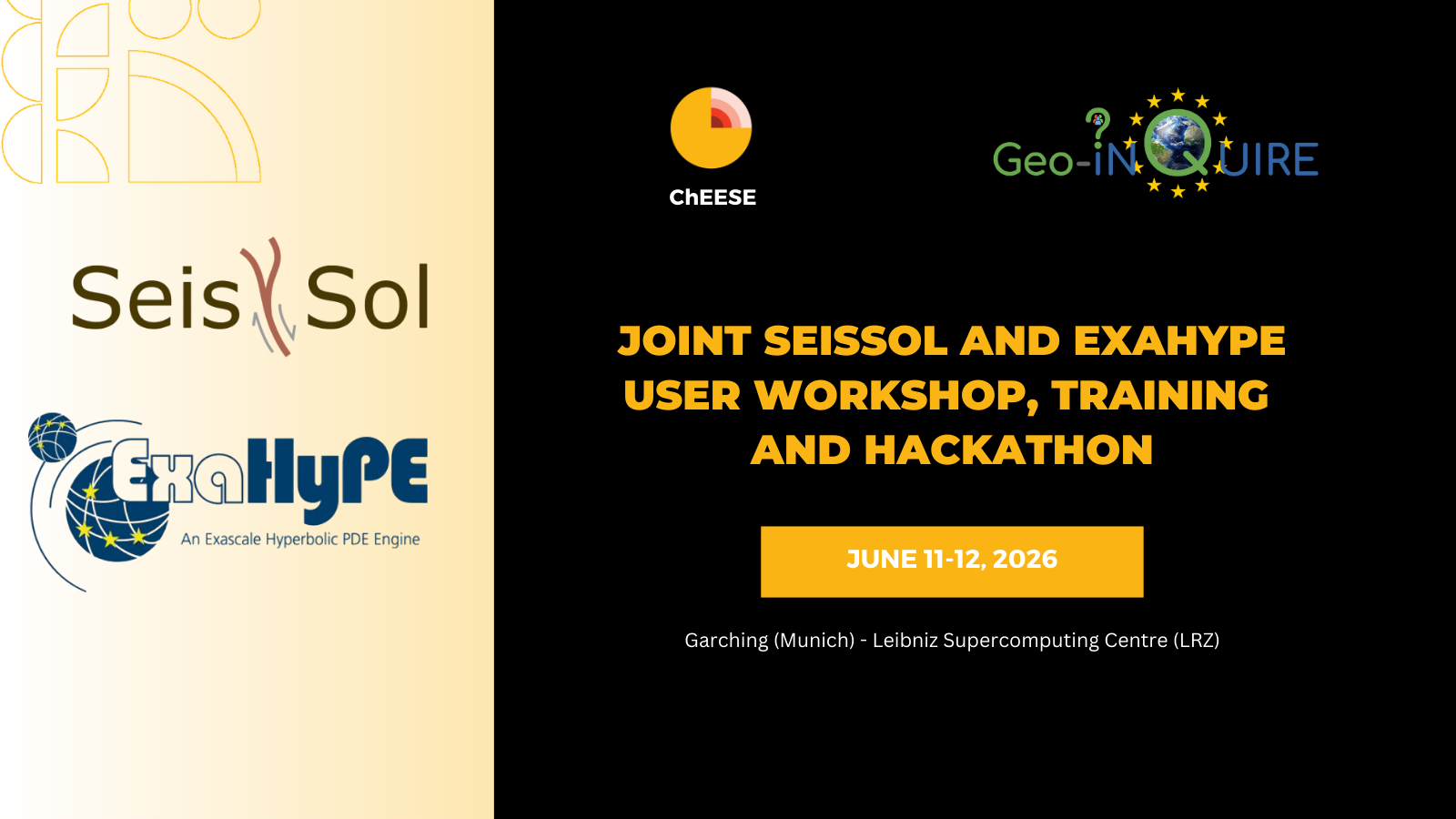Training · November 5, 6, 7 2024
Artificial Intelligence and Machine Learning for Geosciences

Date: 5, 6, 7 November 2024
Location: Delegació CSIC Catalunya, Carrer de les Egipcíaques, 15, Ciutat Vella, Barcelona
Cost: There is no registration fee
Maximum number of attendees: 24 (Fully booked!)
Registration deadline: 13 September, 16:00h
Programme: Read
This course provides attendees with an introduction to the fundamental tools underpinning Artificial Intelligence (AI) algorithms, from linear regression to deep neural networks. The machine learning cookbook, that comprises training, testing and subsequent generalization will be illustrated by a series of hands-on tutorials. These will cover the problems of classification and regression using a series of homemade notebooks deployed over hybrid CPU and GPU architectures.
Learning Outcomes:
Recognize the possibilities offered by AI for one’s research project. Identify the scientific problems that can be resolved by AI.
Develop a practical understanding of the algorithms behind AI by autonomously designing solutions during the hands-on, based on NumPy and Scikit-Learn.
Analyze datasets with supervised and unsupervised learning methods for both classification/clustering and regression/dimension reduction.
Implement deep learning models in Python using the PyTorch, TensorFlow and JAX libraries and train them with real datasets.
Requirements:
This training is aimed at geophysicists willing to develop an operational sense of AI, with a working knowledge of Python. Attendees with a lack of knowledge of Python will be provided with an upgrade notebook beforehand. Background in inverse problems, statistics or data assimilation is a plus.
Needs in terms of computing power:
4 CPU/attendee is a minimum + 1 GPU available ¼ of the time fully for each attendee. The data storage needs can approach 100 GB
Academic Staff:
- Hugo Frezat (ChEESE postdoc, IPGP/CNRS)
- Léonard Seydoux (Assistant Professor, IPGP, on best effort)
- Alexandre Fournier (Senior professor, IPGP)
- Geneviève Moguilny (Research engineer, CNRS/IPGP, on best effort)
Tentative list of hands-on tutorials
- Machine-learning-based classification with the iris dataset (simple) and the Lidar (Laser imaging, detection and ranging) data (more advanced)
- Deep-learning-based classification of handwritten digits (MNIST)
- Deep-learning-based regression of Burgers’ equation and introduction to physics-based learning (physical loss function, differentiable physics)



